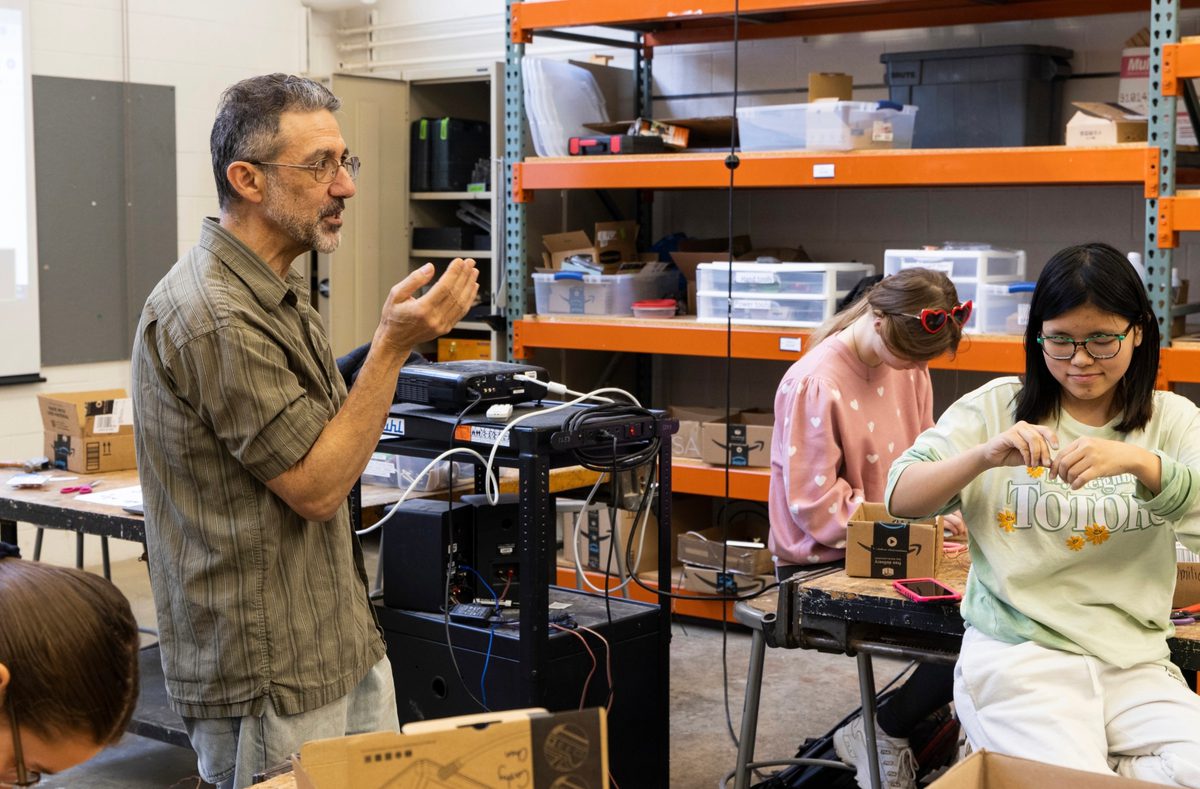Eglash Named University Diversity & Social Transformation Professor

Professor Ron Eglash was appointed a 2024 University Diversity and Social Transformation Professor at the July Board of Regents meeting. The honor recognizes faculty who have demonstrated exceptional contributions to diversity, equity, and inclusion through research, teaching, and service.
The professorship is sponsored by the Office of the Provost and jointly administered by the National Center for Institutional Diversity and the Office of Diversity, Equity, and Inclusion. Eglash joins 34 senior faculty members who have been appointed to the professorship since it was established in 2019.
“This is such an honor,” Eglash says. “I am very grateful for the folks who granted permission to share their Indigenous knowledge, traditional arts, urban crafting, and other ‘heritage algorithms’ with our team, as well as the university students, faculty, and programs that helped turn these into tools for empowering those communities. Decolonization is not just a critique, it also has a positive, generative role to play in the advancement of design, science, and technology.’”
Eglash is a renowned academic with dual appointments at the University of Michigan as Professor of Information at the School of Information and Professor of Art and Design at the Stamps School of Art and Design. At Stamps, he has worked with external partners and provided opportunities for students to engage with the community through their creative practice across Southeastern Michigan.
His research focus is on the intersection of design, decolonization, and technology. Through his work, he has created a new portrait of African cultures, specifically that they are not later than other cultures in incorporating science, technology, engineering, and math understandings but rather were among the first to create a shared design theme of fractal geometry. His book African Fractals: Modern Computing and Indigenous Design became a TED talk with over 1.5 million views. His free online software, Culturally Situated Design Tools, has shown statistically significant improvement for underrepresented students. His most recent research, called “Generative Justice”, takes a similar approach in digital technologies for worker-owned economies. With support from the National Science Foundation, his students are involved in transformative projects from Detroit to Ghana, and his teaching continues to promote design and technology as vehicles for social justice.